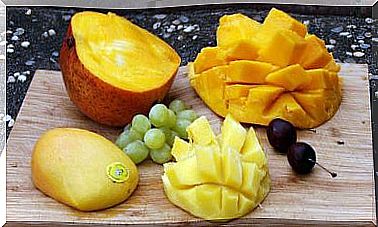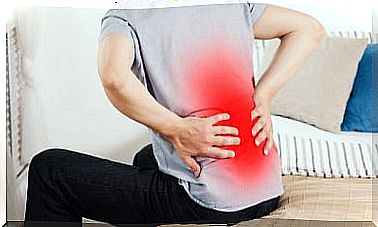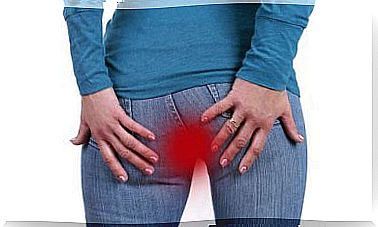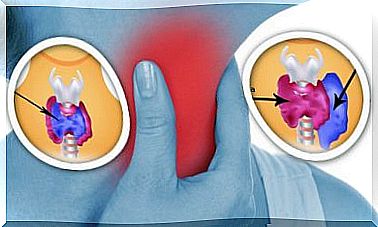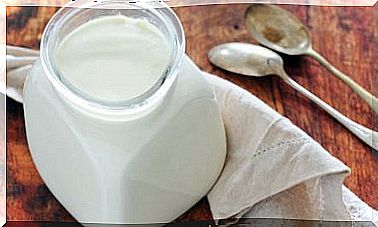Excess Of Dietary Supplements For Children
A diet rich in vitamins and minerals is essential. But what happens if we give an excess of dietary supplements to children?

There is no doubt that a diet rich in vitamins and minerals is essential for healthy growth. But what happens if we give an excess of dietary supplements to children?
Ideally, the nutrients should all come from the diet. However, we know that it is often difficult to make our children eat everything. Especially if it is vegetables. That is why many times it is necessary to resort to these supplements.
The need for nutrients

Living beings need nutrients to grow, survive and ensure the perpetuation of the species. Plants photosynthesize to feed themselves. While animals and humans obtain it through food.
With the passage of time, human beings made changes in their way of nourishing themselves. This led to the development of the culinary art. It not only turned out to be innovative, but also very beneficial.
For example, meat was no longer consumed only raw. Vegetables are generally cooked, among other things. Along with this, more flavorings and chemical ingredients were added to the diet.
With the technological and commercial advancement, the form of feeding of the human being expanded even more. However, you need a proper pace of life and awareness of your own nutrition.
Modern life brought with it dietary supplements to compensate for deficiencies or enhance the favorable effects of certain elements. In this sense, vitamin supplements whose presentation is very diverse were invented and marketed. Soluble powders, capsules, pills, etc.
But what if modernity leads us to lose control over our food? If we exaggerate with regard to dietary supplements for children?
While it is true that these supplements are intended to improve nutrition, you must be careful with their use. Remember that all excesses are harmful.
When is it necessary to give dietary supplements to children?
Before we start supplying these types of products to our children, we must ask ourselves : is it really necessary to give dietary supplements to children?
It is not advisable to choose supplements solely for prevention or because it is believed that many vitamins are needed. It is not always beneficial to opt for “the more the better”.
It must always be borne in mind that children’s bodies are constantly developing. Therefore, unregulated concentrations of chemicals can easily poison them. Thus, they will not be eliminated naturally.
Consultation with the specialist

Ideally, consult your pediatrician and a nutritionist specializing in children, before deciding for or against dietary supplements.
The pediatrician will analyze the child. If necessary, you will refer to a nutritionist to coordinate the most appropriate supplements for you.
The most definitive criterion for deciding whether or not to give dietary supplements to children is food. Normally it is only necessary to complete nutrition when it is deficient for some reason.
Poor does not mean small quantity. In most cases, children in developed countries have an unbalanced diet.
The type of food needed
That happens mainly because eating habits are wrong. There is an excess of foods that are frozen, canned, artificial, or with little nutritional value.
Vegetables and fruits are usually scarce in the daily diet of a European child. Especially when winter approaches. Less desirable foods are consumed more frequently than healthy ones.
Chocolates, cookies, candies, chewing gums, industrialized snacks, alfajores, cakes, sweets, fried foods, sugars, saturated fat, among others, offer little or no nutritional contribution to the body.
Essential products for the little ones

Vegetables, legumes, cereals, grains, seeds, among other products, are essential for good nutrition and must be consumed frequently.
In particular, a regular protein intake should be maintained . These are essential for the formation and strengthening of the muscles, tissues and organs of the body.
Carbohydrates are also important as they provide the body with energy. But it is less quantity and preferentially less refined and more natural. It is necessary to change the white flours for the whole grains to add fiber to the diet.
What can over-supply of vitamin supplements cause to children?
Among children 2 to 4 years of age, the abuse of vitamin supplements can lead to vomiting and diarrhea. Consequently, dehydration.
In advanced cases, they can lead to liver and kidney damage and even poor biliary formation. In children, supplement overdose can lead to poisoning, among other digestive, liver and kidney problems.
Providing dietary supplements to children does not replace or exclude the need to maintain a balanced diet. It is essential that a doctor authorizes these types of supplements before you administer them to your children.
